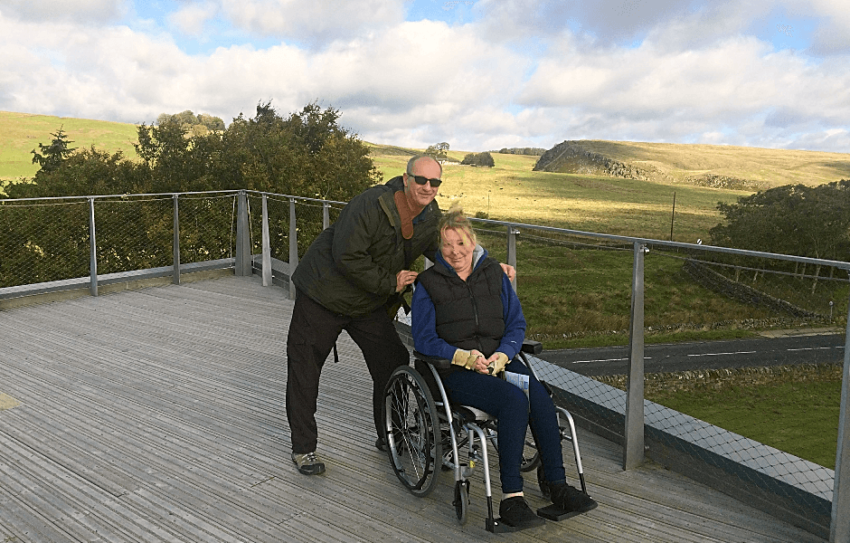Written by Rob and Bridget Bimbler for The Bimblers, January 22, 2023

Can Fibromyalgia affect your eyes?
Sadly, yes, it can. But that doesn’t mean that it will.
I didn’t think it affected my eyes until I started researching for this post. Now I’m not so sure.
In this post, I’ll be discussing how Fibromyalgia can affect your eyes and possible treatments for eye-related symptoms caused by Fibromyalgia.
If you think Fibromyalgia has affected your eyes, see an optician because I’m not offering medical advice.
Does Fibromyalgia Affect Your Eyes?
Fibromyalgia can affect your eyes in several ways.
One of the most common eye-related fibro problems is dry eyes, which can cause discomfort and make it difficult to wear contact lenses.
Fibromyalgia can also cause light sensitivity, making it hard to be in bright environments, such as outdoors on sunny days or in rooms with bright lights.
This is where I need clarification because my optician pointed out I have huge pupils making me sensitive to light.
Additionally, some people with Fibromyalgia experience blurry vision or floaters, making it difficult to read or see details.
Funny enough, I’ve had blurry vision, which I put down to diabetes and floaters, which I assumed were eye migraines. I never considered it could be Fibromyalgia causing the problem.
Fibromyalgia can also cause changes in the nerves and muscles that control eye movement. This can cause double vision or difficulty moving the eyes in specific directions.
It’s important to note that not all people with Fibromyalgia experience eye-related symptoms.
If you are experiencing eye or sight problems, you must consult an optician to rule out other underlying conditions and find the best treatment plan.
Treatment for Eye Related Symptoms Caused by Fibromyalgia
Several treatments can help manage eye-related symptoms caused by Fibromyalgia, including:
Medication:
Several different types of medication can be used to manage the symptoms of Fibromyalgia.
Some of these medications may have side effects that can affect the eyes, such as drowsiness or dry eyes, so it’s important to talk to your optician about the potential side effects of any medication you’re taking.
Artificial tears:
Using artificial tears can help to lubricate your eyes and reduce dryness but speak to your optician first.
Sunglasses:
Wearing sunglasses can help to reduce light sensitivity and protect your eyes from UV rays.
